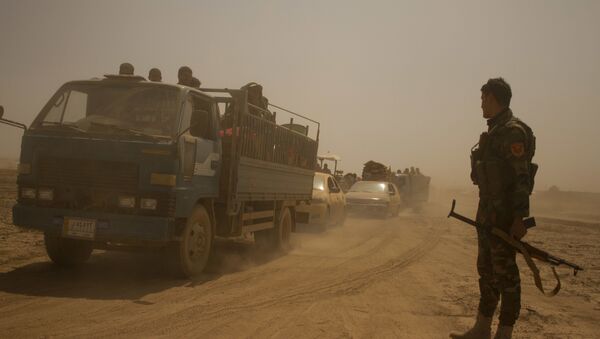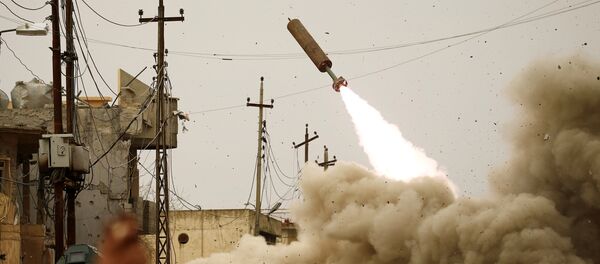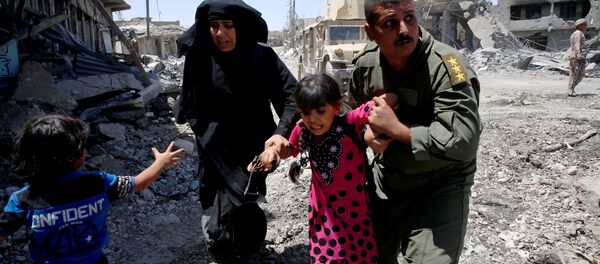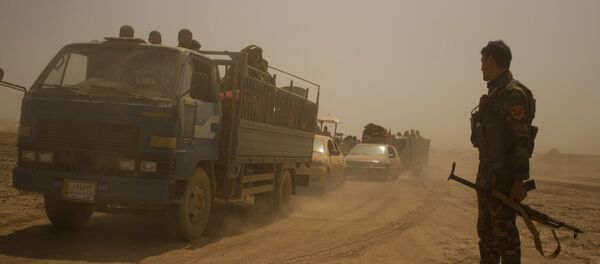According to the photographer, he began by chronicling the unit's fight against Daesh, but had slowly come to realize that the Iraqi officers were using brutal interrogation tactics.
"We worked together every day… I spent more time with them than with my family. I thought they were heroes. They were so brave, fighting on the front lines daily… But then I saw their other side… the torture, the raping, the killing… First they didn't want me to film the torture, and other bad stuff. But eventually, they relented and gave me permission," Arkady told RT.
Other materials revealed by the photographer reportedly showed two brothers who escaped Daesh-held city of Mosul tortured by the ERD. The photographer told RT that the siblings were later killed.
Arkady told RT that his family had received threats from ERD officers since he began publishing the materials.
"Two months ago my family has received direct threats from these forces, namely from Omar Nizar on Facebook. He threatened them, saying they will come after us at night," the freelance journalist told RT, adding that he did not personally receive the threats.
Arkady said that he continued to work because he wanted to "collect materials and document everything [he] saw and then to include it in the documentary that [he] will put together in the future."
The broadcaster received a statement from the US military on the absence of connection to the unit, saying that "the US does not currently train or equip the Iraqi Emergency Response Division." According to the Pentagon, the ERD was blacklisted in 2015 under the Leahy Law, which forbids Washington from giving military assistance to forces known to have committed human rights violations.
RT has alerted several human rights organizations, but, according to the broadcaster, not many of them have answered. Human Rights Watch (HRW) repeated their earlier statement, saying that the United States is "dangerously close to complicity," the broadcaster said. According to media reports, the HRW is planning to interview families of the victims.
The Gulf Center for Human Rights told RT in a statement that the authorities should urgently establish an independent, thorough and unbiased investigation into the past violations and to publishing the results bringing those responsible to justice in line with international law.





